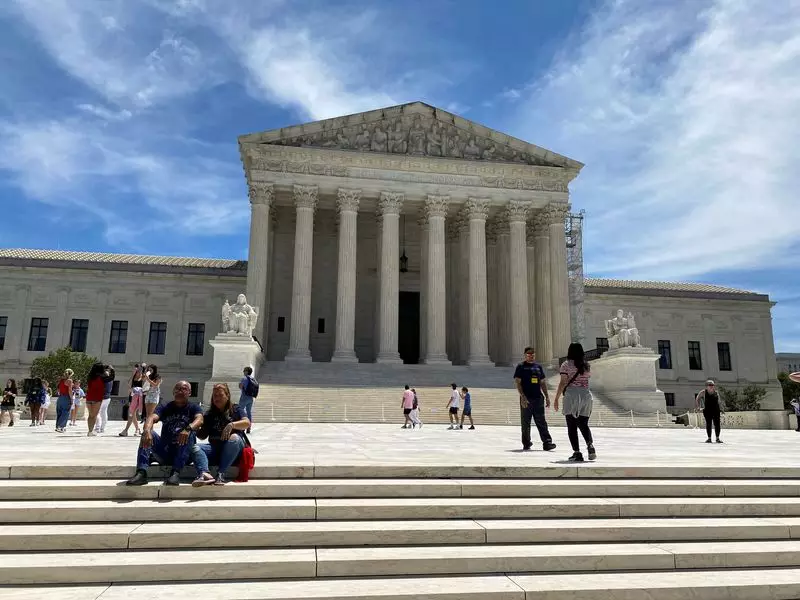The recent ruling by the U.S. Supreme Court on the tax imposed on Americans who have investments in certain foreign corporations has raised significant discussions and debates among lawmakers and legal experts. The case involved a retired couple from Redmond, Washington, Charles and Kathleen Moore, challenging the tax on foreign company earnings that have not been distributed to shareholders. Backed by conservative and business groups, the Moores sought a refund of nearly $14,729 in taxes as minority shareholders in a company in Bangalore, India.
The fundamental question in the case was whether the tax on unrealized gains, also known as the “mandatory repatriation tax,” is permissible under the 16th Amendment of the U.S. Constitution. The Moores, along with various groups supporting them, argued that “income” should only include gains that are realized through direct payment to the taxpayer, not just an increase in the value of property. On the other hand, the Justice Department warned that invalidating the mandatory repatriation tax could result in significant revenue losses for the U.S. government, potentially amounting to hundreds of billions of dollars over the next decade.
The 7-2 ruling in favor of upholding the tax has broader implications beyond the specific case of the Moores. The decision has sparked concerns about the limits of congressional taxation power over wealth and assets. Legal experts and lawmakers have pointed out that a ruling favoring the Moores could have jeopardized various other tax provisions related to business entities like partnerships, limited liability companies, and S-corporations. Additionally, the ruling may impact legislative proposals for imposing a wealth tax on the net worth of super-rich individuals, a concept advocated by Senator Elizabeth Warren and other Democrats.
The case also brought to light ethical concerns regarding the conduct of the justices on the Supreme Court. Democratic senators raised objections to Justice Samuel Alito’s involvement in the case due to his ties to one of the lawyers representing the plaintiffs. Concerns about undisclosed luxury travel funded by private donors and potential conflicts of interest have further fueled calls for increased transparency and accountability among the justices. The ethical debate surrounding the court’s decisions and interactions with external parties highlights the need for clearer guidelines and regulations governing judicial conduct.
The recent Supreme Court ruling on the tax for Americans with foreign investments has far-reaching implications for tax policy, constitutional interpretation, and ethical standards in the legal system. The decision to uphold the tax reflects a balance between revenue generation for the government and the protection of constitutional rights and legal principles. Moving forward, it is essential for lawmakers, legal experts, and the public to engage in constructive dialogues and debates to ensure transparency, fairness, and accountability in the judicial system.

